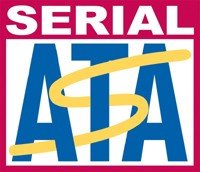
Posted on Tuesday, September 22 2009 @ 18:23 CEST by Thomas De Maesschalck
The Serial ATA International Organization (SATA-IO) announced it is developing a specification ofr a mini-SATA (mSATA) interface connector. This new low-profile connector supports 1.5Gbps and 3Gbps transfer speeds and will enable more effective SATA integration in small form factor applications.
mSATA leverages the speed and reliability of the popular SATA interface to provide a high-performance, cost-effective storage solution for smaller devices like notebooks and netbooks. The specification maps SATA signals onto an existing small form factor connector, enabling more compact integration in a wide variety of applications for both hard disk (HDD) and solid state drives (SSDs). The mSATA connector allows companies to increase the storage offerings of their products without compromising valuable space.
mSATA is particularly beneficial for manufacturers planning to incorporate small form factor SSDs (approximately the size of a business card) in portable PC devices, where space utilization and cost minimization are key concerns.
“As consumers become more reliant on mobile devices, it makes sense to bring the efficiency and speed of SATA technology to this burgeoning highly portable product segment,” said Knut Grimsrud, SATA-IO president and Intel fellow and director of storage architecture. “Solid-state drives provide a rugged, lightweight and lower power storage solution for these devices, and mSATA is one of the few interfaces that can provide a critical compact connection for these small-form factor SSDs.”
mSATA will support 1.5 Gb/s and 3.0 Gb/s transfer rates.
“SATA is already the predominant storage interface used in the hard disk drive (HDD) market,” said Jeff Janukowicz, research manager for Solid State Drives at IDC. “The mSATA specification extends the low-cost, high-speed benefits to the rapidly growing SSD market, increasing the options for manufacturers to develop small form factor solutions.”
Development of the mSATA specification is being driven by members of the SATA-IO Cable and Connector Working Group, including Dell, HP, Lenovo, Samsung, SanDisk, STEC and Toshiba.
